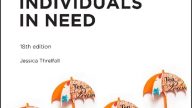Why you should care about Orlando Fraser
Here are our thoughts on Orlando Fraser's pre-appointment scrutiny with the Digital, Culture Media and Sport (DCMS) Committee.
On Thursday 24 March, the Digital, Culture Media and Sport (DCMS) Committee grilled Orlando Fraser QC, the government’s preferred candidate for the next chair of the Charity Commission. After over a year without a permanent Chair to replace Baroness Stowell, the governance limbo at the regulator may finally be coming to an end. What does his likely appointment mean for charity staff, volunteers and trustees though?
Our letter to the DCMS Committee
Mr Fraser already has a track record with the Commission, having been the Senior Legal Board Member under a previous Chair, William Shawcross. A few weeks back, we urged the Committee to take into consideration that charity trustees need to understand how Fraser will maintain the Commission’s independence and ensure that it follows the law without undue interference from politicians or press influence.
Our letter cited three areas of particular concern:
1. His role in the Cage / Joseph Rowntree Charitable Trust (JRCT) case
2. His role in the Commission’s flawed EU Referendum guidance
3. His long-standing links to the Conservative party, following a series of appointees with similar political connections
We hoped the Committee would drill into these issues in their scrutiny, and to some degree they did.
Let’s start with the positives
Throughout his pre-appointment procedure, Fraser did sound passionate about the importance of charities and their role in society. Alongside his long career as a Barrister, he recounted an array of advisory and volunteer positions within the charity sector. He talked about his work on the management committee of a West London refuge for women victims of domestic abuse, as a governor of Ilfracombe College, and his time on NCVO’s advisory council.
In his evidence, Fraser repeatedly stressed the importance of the Charity Commission’s independence, saying ‘I would be running a very independent Commission if I were appointed’ and ‘I must ensure the Commission acts in an impartial way, without fear or favour’. He argued that he understands the importance of independence and impartiality, especially because of his legal background, and that he would be able to stand up to pressure from politicians and the press, when charities were unfairly attacked.
Repeated questions from the committee about independence related to his involvement in the Conservative party. He sought to assure the Committee that his ties to the party were no longer strong and that had fizzled out at least 20 years ago. It seemed like he no longer has a strong affiliation with any political party, and that he has certainly not had any private encounters with the Prime Minister! He said that if he were appointed, ‘we would not be an arm of government in any way, we would look at the facts’.
Fraser seemed to recognise there were some issues with morale and senior leadership turnover at the Charity Commission since he left, and that he would be ‘opening up the car bonnet’ and taking a look inside.
Then on to the negatives
Fraser’s answers often felt quite unprepared and under-evidenced, especially when it came to important questions regarding strategy and the future of the Charity Commission. He said that if he were appointed he would get a strategic review underway, but didn’t have a clear idea about how this would happen or what it should consider. For example, his answer on the strategic direction of the Commission contained a long ramble about digitalisation, which is of course important, but the question of the future strategy is a much wider one which needed much more substance.
Other answers felt similarly unprepared. He made some unclear statements about diversity, when it was an open goal for him to tell the committee what he would be looking for or leading in this respect if he were appointed, especially given the circumstances of his own appointment.
Again, more vagueness surfaced surrounding the JRCT case. Our letter had advised the Committee to get answers from Fraser about his role, where the Commission incorrectly tried to ‘fetter the discretion of trustees’ of JRCT in their duties, by demanding that they never fund the controversial advocacy group Cage in the future. The Committee enquired about this case a few times, but his answers were muddled, and it almost seemed like he was shifting the blame onto the staff for the Commission having to back down in the face of judicial review.
Disappointingly, the Committee failed to grill Fraser over his role in the Commission’s flawed EU Referendum guidance, which was so poor that it had to be withdrawn and reissued. This says more about the Committee than it does about Fraser, however, all we can do is hope that something of this gravity does not happen again whilst he serves as Chair.
What we hope to see
As we know from previous pre-appointment sessions like this, the decision to recommend a candidate is just advice which the Government doesn’t necessarily have to take. Members of the Committee even grumbled about their lack of power to influence the final decision. However, these Committee hearings are crucial, especially for us working in the sector, so we can see and prepare for what’s to come.
So, what can we expect from Orlando Fraser, assuming the likelihood of his being appointed?
We can only really go on his past record and what he said to the Committee. The fact that he repeatedly stressed the importance of the Commission’s independence and following the law was crucial – but as he himself said, we will have to rely on his ‘actions not words’. We will hold him to these words in his future actions. He was far less convincing when talking about his own past record and how he had applied such principles in practice, which was very concerning.
What’s perhaps clearer is that things will change at the Commission in the near future. There will be a new Chair, and potentially some new board members. A new strategy could mean a change in emphasis in what the Commission focuses on and how it deals with trustees, or what developments they choose to use their limited budget. Fraser would be wise to look seriously at diversity and inclusion too, not just at the board level but more widely. We all should have a chance to influence the development of any new strategy, to improve what the Commission does for the public and for charities.
Throughout, DSC will be holding the new Chair to account – because we believe in the independence of charities and that their regulator needs to be independent of the press, politicians, and populist influence.


